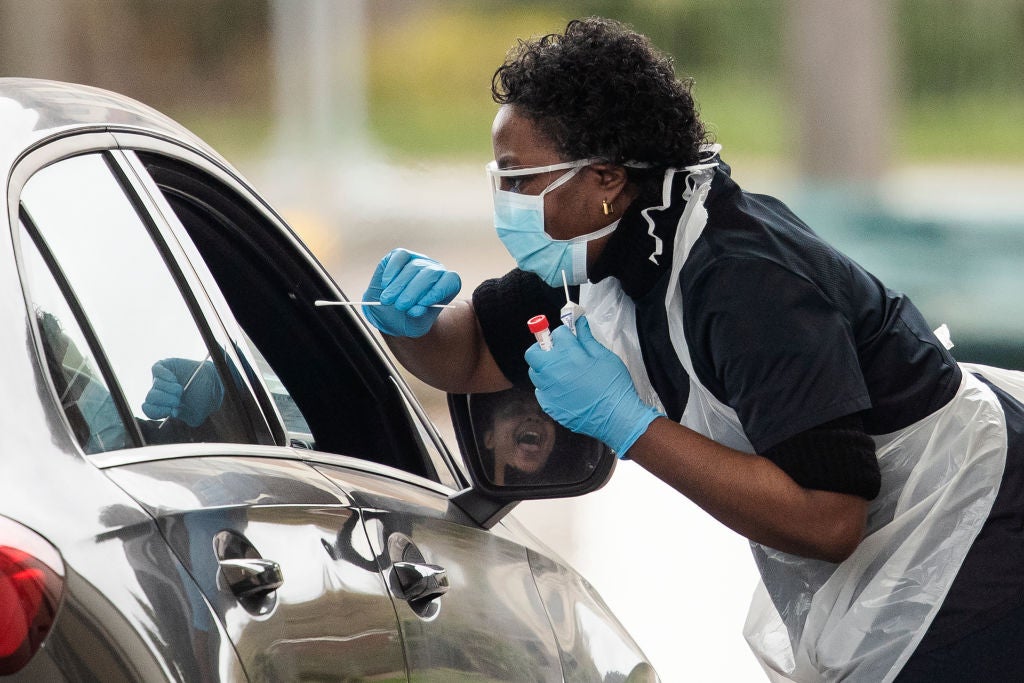Covid R rate jumps above 1 as UK braces for surge in cases over Christmas
The number has risen from between 0.9 and 1 last week

Your support helps us to tell the story
From reproductive rights to climate change to Big Tech, The Independent is on the ground when the story is developing. Whether it's investigating the financials of Elon Musk's pro-Trump PAC or producing our latest documentary, 'The A Word', which shines a light on the American women fighting for reproductive rights, we know how important it is to parse out the facts from the messaging.
At such a critical moment in US history, we need reporters on the ground. Your donation allows us to keep sending journalists to speak to both sides of the story.
The Independent is trusted by Americans across the entire political spectrum. And unlike many other quality news outlets, we choose not to lock Americans out of our reporting and analysis with paywalls. We believe quality journalism should be available to everyone, paid for by those who can afford it.
Your support makes all the difference.The reproduction number, or R value, of coronavirus transmission across the UK is now above 1.
Figures published by the Government Office for Science and the Scientific Advisory Group for Emergencies (Sage) on Friday estimated the figure to be between 1.1 and 1.2.
The R number was between 0.9 and 1 last week.
R represents the average number of people each Covid-19 positive person goes on to infect.
When the figure is above 1, an outbreak can grow exponentially.
If the R number is between 0.9 and 1 means that on average every 10 people infected will infect between 9 and 10 other people.
But as it has grown to between 1.1 and 1.2, this means that, on average, every 10 people infected will infect between 11 and 12 other people.
Experts advising the Government have revealed all NHS England regions have R estimates that are above or span 1, suggesting the epidemic is growing in much of the country.
The East of England, South East and London now have R estimates well above 1, they said.
It comes after the majority of places in England already in tier 3 restrictions, including Greater Manchester, were told on Thursday they would remain in tier 3 over the next few weeks.
Bristol and North Somerset meanwhile are moving to a lower level of restrictions due to falling levels of transmissions.
Earlier this week, the Department of Education announced mass testing for all secondary school pupils would take place weekly in London, Essex and Kent from January to help combat the rising numbers of transmissions.
Meanwhile, both students and staff identified as a close contact of someone with coronavirus will be able to get a daily test over seven days under the new testing scheme, which will also start in January.
This means that students and staff will not need to self-isolate in this situation if they take a daily test.



Join our commenting forum
Join thought-provoking conversations, follow other Independent readers and see their replies
Comments